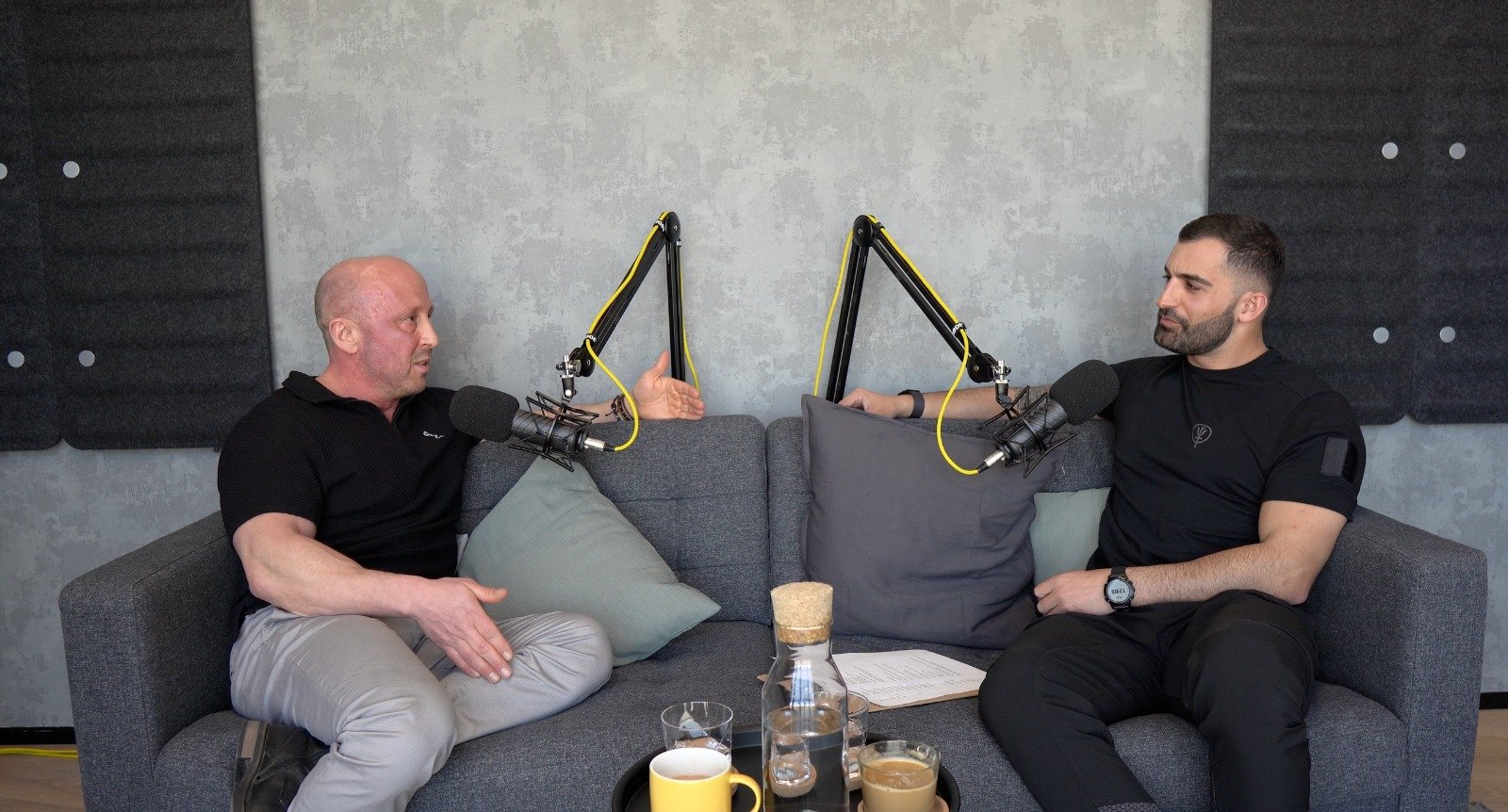EPISODE 1
ARE YOUR TESTOSTERONE LEVELS RUINING YOUR LIFE?
MEN’S HEALTH EXPERT, DR ROB STEVENS.
Today Ty Temel goes Off Script with Dr Robert Stevens from The Men’s Health Clinic.
Adopting a personalised approach to your hormonal health, GMC registered UK doctor, Rob specialises in low testosterone & testosterone replacement therapy.
Ty & Rob discuss
The effects of low testosterone.
What lifestyle changes you can make.
Their own experiences with testosterone replacement therapy.
The influence of rampant steroid use.
LINKS & REFERENCES
The Men’s Health Clinic:
EPISODE HIGHLIGHTS
“You don't really get taught much about testosterone at medical school…
You get the basics, and I mean the real basics. So I started looking into it and realised that there was a massive shortcoming in service, care, everything, so decided to specialise in managing testosterone.”
- 2:45 - Dr Rob Stevens
——
“We have a paternalistic relationship with the NHS and you go to the doctor for a cure. That's not really what it should be, you should be going to establish a diagnosis and asking for support to hopefully affect a change to yourself by making the positive steps yourself, not just taking a pill.” - 6:20 - Dr Rob Stevens
——
“I think it's our fundamental lack of understanding of our physiology that causes our problems. If we understood what our true nature was and what we were supposed to do - hunter gatherer - then we'd understand our bodies more and we wouldn't have these issues.” - 10:10 - Dr Rob Stevens
——
“When you get fat, you create too much oestrogen, and the oestrogen feeds back to parts of the brain that negatively feedback this axis that creates natural testosterone. What you're essentially doing is tricking your brain into thinking that you have enough testosterone, so you no longer send enough signals down to the testicles to boost testosterone. When that happens, you become tired, you have less energy, you do less and you eat more.” - 12:40 - Dr Rob Stevens
——
“Testosterone also converts to oestrogen. Everybody's worried about what? Bitch tits. So gynecomastia is the medical term for this - excess oestradiol compared to testosterone will be stimulatory to your breast tissue. Testosterone and DHT are inhibitory, and oestradiol is excitatory. So you can see that there needs to be a good ratio of testosterone to oestrogen to DHT.” - 22:55 - Dr Rob Stevens
——
“There's an association of testosterone with performance enhancement. If you've just walked into the GP going ‘I’m a bit low’, they might think ‘He just wants some gear’. Since there's that association, and we’ll never get rid of that association, the traditional medical services will always see testosterone replacement therapy as an excuse to do steroids because they don't understand what we’re trying to do - We're trying to normalise physiology.” - 36:30 - Dr Rob Stevens
——
“Humans, disappointingly, fight all the time. That doesn't necessarily mean physical fighting, it's psychological fighting. So post traumatic stress disorder, particularly the stress part. It's the fact that we expose ourselves to psychological stress with ourselves being physical beings, we should run away. But we can't run away in the weird, perverse, civilised world that we live in right now.” - 43:55 - Dr Rob Stevens
——
“Social media is absolute poison, but a necessary tool in our society. It's about understanding the benefits and the risks, and the immense limitations of it as a form of communication.” - 47:25 - Dr Rob Stevens
——
“Anabolic steroids and testosterone are rife within the celebrity community and the athletic community. The heroes are not necessarily heroes, if you really break it down.” - 50:25 - Dr Rob Stevens
——
“With Wim Hof breathing, essentially you're consciously breathing, you're consciously influencing your physiology, you're consciously creating a stressed state. It's the conscious manipulation of your physiology that's the difference, and there's real benefits of that, not only to your mental health but obviously your physical health.” - 57:50 - Dr Rob Stevens







